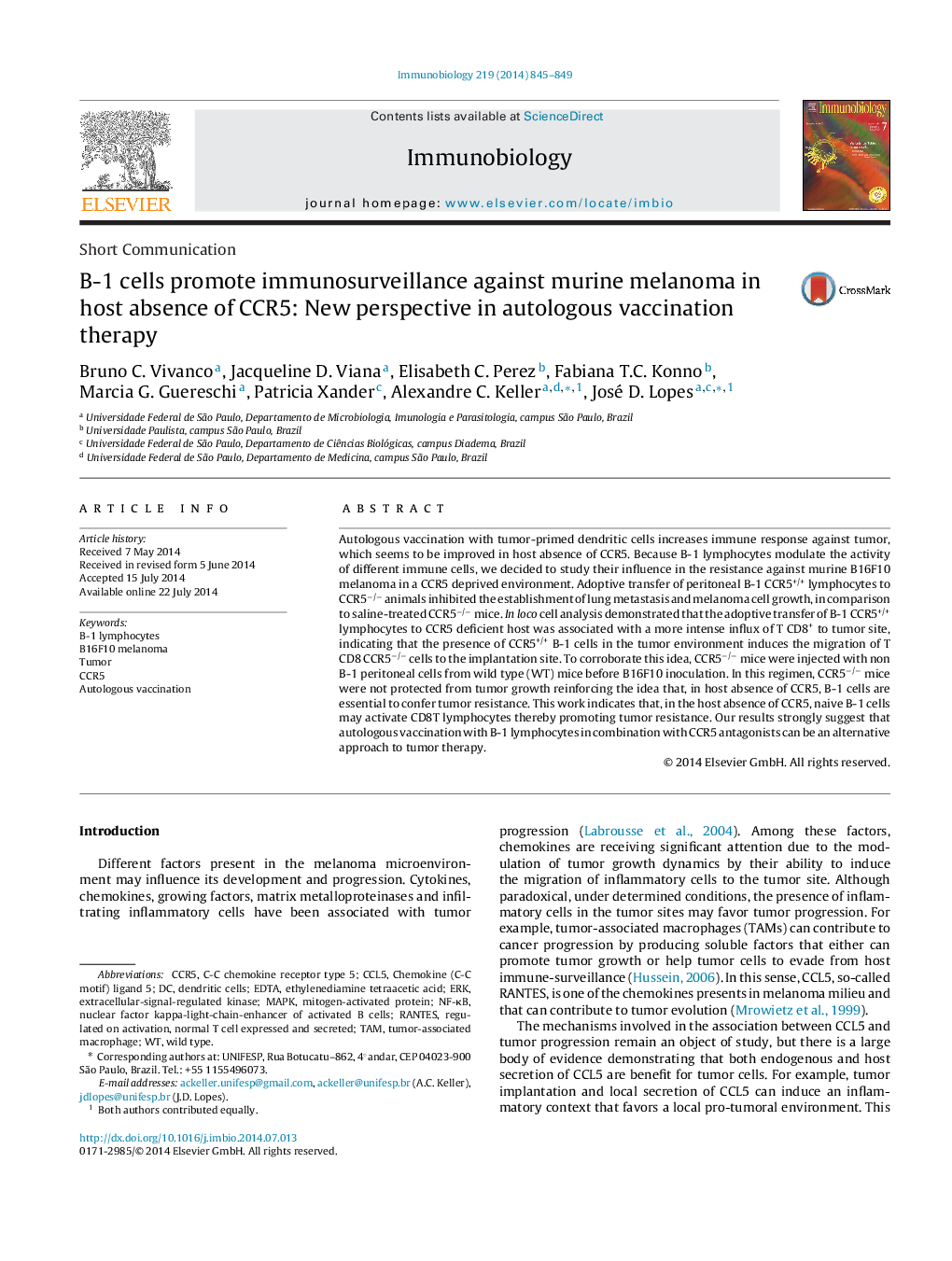| Article ID | Journal | Published Year | Pages | File Type |
|---|---|---|---|---|
| 2182955 | Immunobiology | 2014 | 5 Pages |
Autologous vaccination with tumor-primed dendritic cells increases immune response against tumor, which seems to be improved in host absence of CCR5. Because B-1 lymphocytes modulate the activity of different immune cells, we decided to study their influence in the resistance against murine B16F10 melanoma in a CCR5 deprived environment. Adoptive transfer of peritoneal B-1 CCR5+/+ lymphocytes to CCR5−/− animals inhibited the establishment of lung metastasis and melanoma cell growth, in comparison to saline-treated CCR5−/− mice. In loco cell analysis demonstrated that the adoptive transfer of B-1 CCR5+/+ lymphocytes to CCR5 deficient host was associated with a more intense influx of T CD8+ to tumor site, indicating that the presence of CCR5+/+ B-1 cells in the tumor environment induces the migration of T CD8 CCR5−/− cells to the implantation site. To corroborate this idea, CCR5−/− mice were injected with non B-1 peritoneal cells from wild type (WT) mice before B16F10 inoculation. In this regimen, CCR5−/− mice were not protected from tumor growth reinforcing the idea that, in host absence of CCR5, B-1 cells are essential to confer tumor resistance. This work indicates that, in the host absence of CCR5, naive B-1 cells may activate CD8T lymphocytes thereby promoting tumor resistance. Our results strongly suggest that autologous vaccination with B-1 lymphocytes in combination with CCR5 antagonists can be an alternative approach to tumor therapy.
